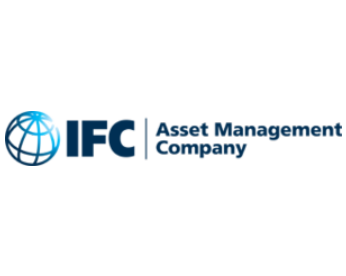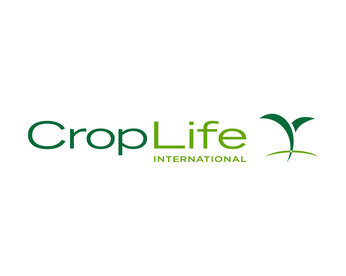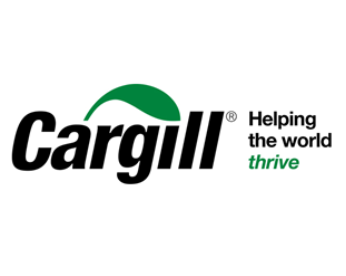Finance
17.1) Strengthen domestic resource mobilization, including through international support to developing countries to improve domestic capacity for tax and other revenue collection.
MasterCard
Governments with cash heavy economies are unable to maximize tax revenue or monetary policy. With 85% of the world’s retail transactions still done in cash and check, MasterCard is actively working to build a World Beyond Cash where more people have access to and use electronic payments. Economies that successfully shift away from cash can help governments increase domestic revenue that can be mobilized toward development goals.
17.2) Developed countries to implement fully their ODA commitments, including to provide 0.7% of GNI in ODA to developing countries of which 0.15-0.20% to least-developed countries
17.3) Mobilize additional financial resources for developing countries from multiple sources
MasterCard
MasterCard is building a multi-sector effort designed to support the emergence of inclusive financial services systems in an entirely different way, altering the nature and mix of funding from traditional types of support e.g. equity or grant funding in isolation. Together, these entities will select target markets to deepen financial inclusion, design a country-specific “ecosystem map” to scale financial inclusion and offer coordinated funding to accomplish the following in a more holistic way:
— Market- level transformation in financial inclusion;
— Investment in a coordinated set of interventions against highly targeted country research;
— A “blue print” for engaging all the players necessary to scale products and services for the under-served aligned with key stakeholders’ strategic areas of interest and core competencies;
— Identification of a high potential portfolio of companies whose participation in the financial services ecosystem can create a positive, “chain reaction” that will accelerate market evolution.
International Finance Corporation
Blended finance investment solutions capitalize on partnerships among diverse actors, including international organizations, development co-operation agencies and private enterprise. An example of such a partnership is the Women Entrepreneurs Opportunity Facility, launched in March 2014 by the International Finance Corporation and Goldman Sachs 10,000 Women. This is the first of its kind global facility dedicated to expanding access to capital for women-owned small and medium enterprises. Through the facility, the International Finance Corporation aims to invest up to USD 600 million in financial institutions that are committed to expanding their financial services to small and medium enterprises owned by women in emerging markets. But as of June 30, 2018, IFC has made over $1.1 billion in investments in 41 financial intermediaries in 29 countries--surpassing its original $600 million target. It has also funded nine advisory projects in nine countries with total project value of $4.2 million. It also aimed to signal the relevance of this asset class to the broader investor market. The funding for the facility also includes USD 50 million of blended finance from Goldman Sachs’ 10,000 Women to create performance incentives for financial institutions to boost their lending to this segment, and to support capacity building among financial institutions and women borrowers.
17.4) Assist developing countries in attaining long-term debt sustainability through coordinated policies aimed at fostering debt financing, debt relief and debt restructuring, as appropriate, and address the external debt of highly indebted poor countries (HIPC) to reduce debt distress
17.5) Adopt and implement investment promotion regimes for LDCs Technology
Technology
17.6) Enhance North-South, South-South and triangular regional and international cooperation on and access to science, technology and innovation, and enhance knowledge sharing on mutually agreed terms, including through improved coordination among existing mechanisms, particularly at UN level, and through a global technology facilitation mechanism when agreed
Google strongly supports the Internet Governance Forum, a medium through which multiple stakeholders can convene on key Internet governance and policy issues. The IGF advocates for democratic and transparent processes, encouraging participants from both the private and public sectors. In order to fund the forum, Google established the “Friends of the IGF Fund” through the Tides Foundation. Contributors to this fund include Intel and Facebook.
17.7) Promote development, transfer, dissemination and diffusion of environmentally sound technologies to developing countries on favourable terms, including on concessional and preferential terms, as mutually agreed
17.8) Fully operationalize the Technology Bank and STI (Science, Technology and Innovation) capacity building mechanism for LDCs by 2017, and enhance the use of enabling technologies in particular ICT
Capacity-building
17.9) Enhance international support for implementing effective and targeted capacity building in developing countries to support national plans to implement all sustainable development goals, including through North-South, South-South, and triangular cooperation Trade
Trade
17.10) Promote a universal, rules-based, open, non-discriminatory and equitable multilateral trading system under the WTO including through the conclusion of negotiations within its Doha Development Agenda
17.11) Increase significantly the exports of developing countries, in particular with a view to doubling the LDC share of global exports by 2020
17.12) Realize timely implementation of duty-free, quota-free market access on a lasting basis for all least developed countries consistent with WTO decisions, including through ensuring that preferential rules of origin applicable to imports from LDCs are transparent and simple, and contribute to facilitating market access
Policy and institutional coherence
17.13) Enhance global macroeconomic stability including through policy coordination and policy coherence
17.14) Enhance policy coherence for sustainable development
17.15) Respect each country’s policy space and leadership to establish and implement policies for poverty eradication and sustainable development
Multi-stakeholder partnerships
17.16) Enhance the global partnership for sustainable development complemented by multi-stakeholder partnerships that mobilize and share knowledge, expertise, technology and financial resources, to support the achievement of the sustainable development goals in all countries, in particular developing countries
Mars
At Mars, we believe everyone working within our extended supply chains should earn sufficient income to maintain a decent standard of living. One way we’re making progress is through the Farmer Income Lab, an open-source “think-do-tank” that will enable Mars and others to leverage our unique human, social and financial resources to identify and activate solutions needed to eradicate smallholder poverty in global supply chains.
The Lab invests in research and brings together diverse stakeholders to ask questions, create solutions and inspire results-oriented action. It is guided by an advisory panel of experts from academia, nonprofit and intergovernmental organizations – with Oxfam, the University of Wageningen Center for Development Innovation and Dalberg Advisors as core partners.
This year, the Lab’s focus is on identifying effective actions that buyers can take to enable smallholder farmers in global supply chains to meaningfully increase income. This will culminate in a ‘What Works’ publication, providing an overview of promising models, sourced from academic literature and stakeholder dialogues, that increase incomes and demonstrate what factors are most successful.
Our commitment to increasing incomes is part of Mars’ Sustainable in a Generation Plan, a $1billion investment to accelerate sustainable growth in alignment with the UN SDGs.
Novozymes
Novozymes is committed to partnering for sustainability impact through a diverse array of partnerships with multilateral institutions as laid out in its Partnering for Impact strategy. Novozymes collaborated with the World Business Council for Sustainable Development and other partners to help launch below50 – a partnership to promote the use of more sustainable low-carbon transportation fuels. Novozymes has been a leader of Sustainable Energy for All (SE4All), the World Bank-U.N. led initiative that seeks to transform the global energy sector by ensuring universal access to modern energy services, double the rate of improvement in energy efficiency and double the share of renewables in the global energy mix by 2030. Novozymes is an active partner of the Sustainable Food Platform, an initiative under the P4G partnership that aims to rethink market-based solutions for food and nutrition security in Africa. In 2019, the partnership developed its first product idea for a healthy, nutritious and affordable biscuit, in which Novozymes’ enzymes enable the addition of protein-rich flours. In 2019, Novozymes supported the implementation of the Renewable Energy Directive (RED II) in Europe. In partnership with industry organizations, Novozymes focused on maintaining direct dialogue with influencers and policy makers to advocate for the use of renewable fuels. Finally, Novozymes has been a signatory to the UN Global Compact since 2001 and has demonstrated its support for broader U.N. goals and issues by engaging with various U.N. initiatives (e.g. PRME), working groups such as Caring for Climate, and regional networks in the Nordic region, India, Brazil, China and North America.
Pirelli
Pirelli constantly strives to achieve the highest levels of product safety. The company’s commitment to road safety goes beyond the tire, with numerous training and awareness programs as well as ongoing research into innovative technological solutions for sustainable transportation. In addition to the numerous training activities the Company has organized during the last few years, in June 2016 Pirelli signed a four-year agreement with FIA in support of the “FIA Action for Road Safety Campaign” whose main objective is to raise awareness on safe driving.
MasterCard
MasterCard co-created a new end-to-end technology solution with humanitarian aid organizations to distribute aid swiftly and safely even in the absence of connectivity. The MasterCard Aid Network has already been in field where it has helped 15,000 people in Yemen and 9,000 people in the Philippines receive aid through programs managed by Save the Children and World Vision, respectively. At its core, MasterCard Aid Network is a digital, non-financial service that organizations can use to provide basic human needs such as food, shelter and healthcare to impacted populations.
17.17) Encourage and promote effective public, public-private and civil society partnerships, building on experience and resourcing strategies of partnerships
CROPLIFE INTERNATIONAL
CropLife International and its global network have developed more than 300 training partnerships with governments, NGOs and donors and others to ensure farmers are able to grow healthy crops sustainably. Click on the following links to see CropLife International’s showcase projects in Ethiopia, Vietnam, West Africa, Honduras and India.
Cargill
Cargill has worked with the World Food Program USA (WFP USA) and the United Nations World Food Programme (WFP) globally since 2001, providing more than $12 million in support to improve the health and nutrition of people in need in Africa, Central and South America and Asia. In addition to supporting famine response in 2012 and 2017, Cargill is working to advance long-term food and nutrition security. In 2016, Cargill announced a new two-year, $1 million effort to support WFP’s Homegrown School Meals Program in Honduras, Indonesia and Kenya. This new initiative will work with schools and local governments to improve the school meal nutrition and connect local farmers to the supply chains. More information is available at Cargill stories and Cargill sustainability.
Cargill recognizes the complex social, economic and environmental issues facing our world. Due to the complexity of these issues, we form partnerships to provide meaningful impact in our communities and across our supply chains. We contribute our knowledge, skills, financial and technical support to our partnerships and believe our contributions can help deliver long-term solutions. That’s why our partnerships are focused primarily to help us advance our priorities of nourishing our world, protecting our planet and enriching our communities. We typically identify partner organizations that align with our business interests, solve real and underlying problems, engage our employees, provide opportunities to collaborate with customers and other stakeholders, and allow us to make a distinct contribution to help create solutions. In fiscal year 2019, we granted $61.3 million in total charitable contributions provided across 56 countries. For more information, visit Cargill’s 2019 annual report.
Novozymes
Novozymes’ corporate strategy is called Better Business with Biology because the company is committed to doing its part to solving the challenge of ensuring good standards of living for a growing population without depleting the world’s resources and accelerating climate change. Novozymes is active within the UN Sustainable Energy For All (SE4All) initiative and started the Sustainable Bioenergy Accelerator, with the UN Food and Agriculture Organization (FAO), Roundtable on Sustainable Biomaterials (RSB) and other international organizations. The group works to accelerate the use of sustainable bioenergy for power and fuel, whilst considering agricultural resources, sound environmental management, economic growth rates, energy and food security needs, financing mechanisms and policy frameworks.
Chevron
Chevron is one of the leading pioneers in public-private partnerships and continues to innovate in this space. Its journey began when it established the Angola Partnership Initiative (API) in 2002, partnering with international aid agencies such as USAID and UNDP to help rebuild Angola after years of civil war. The initiative focused on development programs to improve health and education, build the capacity of Angolan non-governmental organizations and government development agencies, and help reduce poverty through agribusiness and the development of micro, small and medium-size enterprises. Chevron has continued to improve and refine its partnership model, and now has active public-private partnerships in many countries, including major initiatives in the U.S., Kazakhstan, Nigeria, Bangladesh, and Thailand. Chevron aims to encourage and promote effective public-private partnerships by sharing its learnings and best practices with others in the development and business communities.
MasterCard
MasterCard has launched The MasterCard Labs for Financial Inclusion, the first of its kind innovation R&D hub, based in Nairobi, with support from the Bill & Melinda Gates Foundation. This Lab is working with local entrepreneurs to create commercially-viable financial products and services that reach 100 million people living in poverty, including small and micro merchants.
Working with the Internal Finance Corporation (IFC), MasterCard has established a USD $250 million risk participation facility to help emerging market banks participate in the MasterCard network and issue prepaid, debit and credit cards to people previously unable to access electronic payments.
Data, monitoring and accountability
17.18) By 2020, enhance capacity-building support to developing countries, including for least developed countries and small island developing States, to increase significantly the availability of high-quality, timely and reliable data disaggregated by income, gender, age, race, ethnicity, migratory status, disability, geographic location and other characteristics relevant in national contexts
17.19) By 2030, build on existing initiatives to develop measurements of progress on sustainable development that complement gross domestic product, and support statistical capacity-building in developing countries














